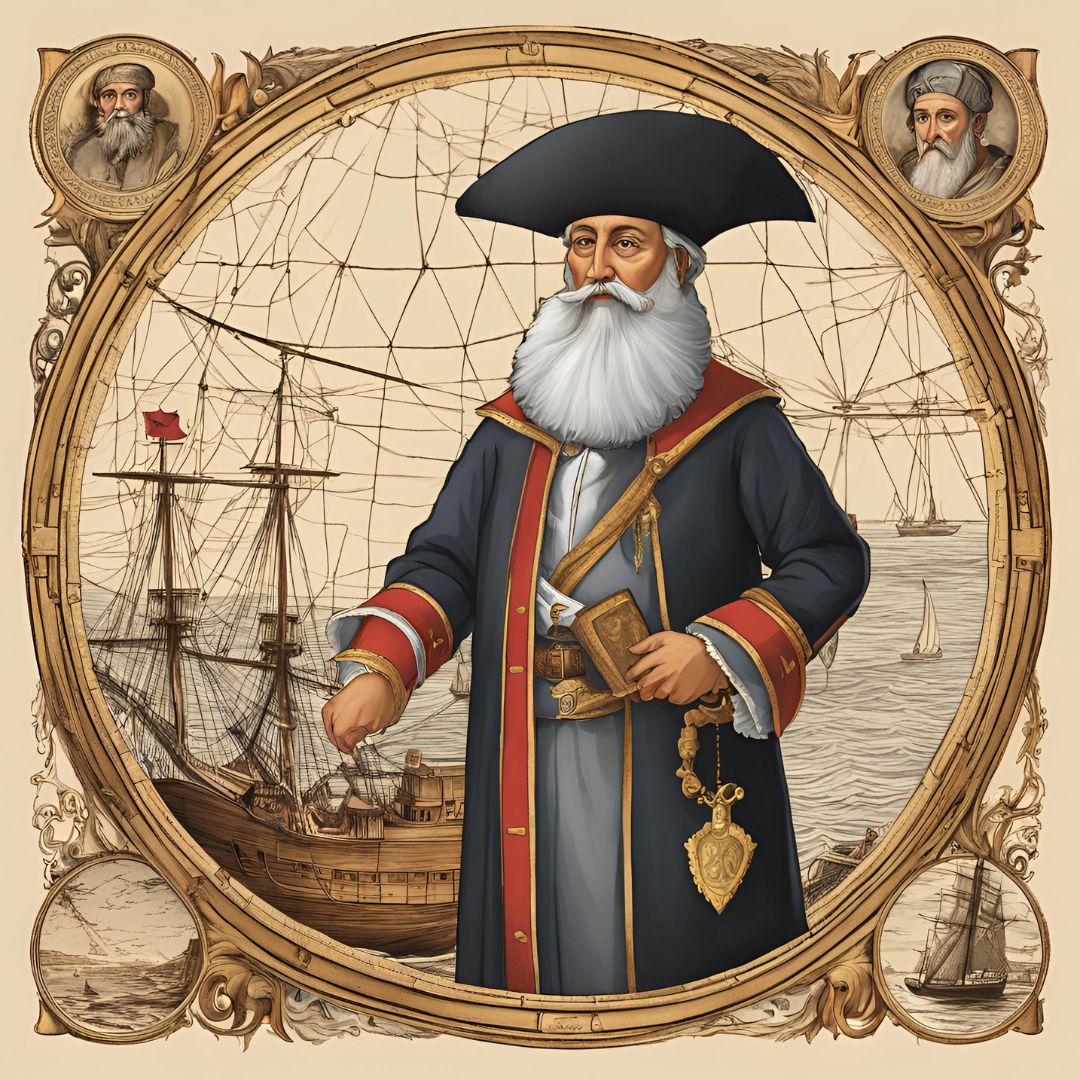The notion that Vasco da Gama discovered India is a pervasive historical misconception. While da Gama’s arrival in India was significant, it is inaccurate to attribute the discovery of the Indian subcontinent to him. India has been a known and thriving center of trade, culture, and civilization long before the arrival of the Portuguese explorer. This article aims to debunk the myth surrounding Vasco da Gama and present a more accurate historical context.
The Myth of Vasco da Gama Discovering India
The claim that Vasco da Gama discovered India originates from a Eurocentric perspective that often overlooks the rich and intricate histories of non-European civilizations. Da Gama’s voyage, which reached the Indian port of Calicut (now Kozhikode) in 1498, was undoubtedly a remarkable maritime achievement. However, India was far from an undiscovered land. It had been a hub of global trade and cultural exchange for millennia.
Ancient Trade Routes to India
The Silk Road and Maritime Routes
India’s connectivity with the rest of the world can be traced back to ancient trade routes, including the famous Silk Road. This network of trade routes facilitated the exchange of goods, culture, and ideas between the East and the West. Additionally, maritime routes across the Indian Ocean linked India to Africa, the Middle East, and Southeast Asia.
Trade with Ancient Egypt, Rome, and Greece
Historical records show that India had active trade relations with ancient Egypt, Rome, and Greece. Indian spices, textiles, and precious stones were highly sought after by these civilizations. Roman coins and artifacts have been found in various parts of India, indicating the extensive trade that occurred long before the arrival of European explorers.
Arab and Persian Traders
Arab and Persian traders played a crucial role in connecting India with the rest of the world. By the early medieval period, Arab merchants had established thriving trade networks along the Malabar Coast. These traders brought not only goods but also ideas and cultural exchanges that enriched Indian society.
India’s Flourishing Civilizations Before Vasco da Gama
The Indus Valley Civilization
One of the earliest and most advanced civilizations in the world, the Indus Valley Civilization (circa 3300–1300 BCE), was situated in present-day Pakistan and northwest India. This civilization boasted sophisticated urban planning, trade networks, and a writing system, underscoring India’s long-standing engagement in regional and global exchanges.
The Maurya and Gupta Empires
The Maurya Empire (circa 322–185 BCE) and the Gupta Empire (circa 320–550 CE) were significant Indian empires known for their political stability, economic prosperity, and cultural achievements. The Maurya Empire under Ashoka expanded its influence across Asia, while the Gupta Empire is often referred to as the Golden Age of India due to its advancements in science, mathematics, and the arts.
The Chola Dynasty and Maritime Trade
The Chola Dynasty (circa 300 BCE–1279 CE) was renowned for its naval prowess and extensive trade networks. The Cholas established maritime routes that connected India with Southeast Asia and China, facilitating the exchange of goods, culture, and technology.
Arab and Persian Explorations
Ibn Battuta’s Travels
The Moroccan explorer Ibn Battuta visited India in the 14th century and documented his experiences in great detail. His writings provide valuable insights into the vibrant and diverse cultures he encountered in India, further dispelling the notion that India was an unknown land.
Persian and Arab Geographers
Persian and Arab geographers such as Al-Idrisi and Al-Biruni also documented their travels and studies in India. Their works highlight the extensive knowledge and interaction that existed between India and the Islamic world.
Pre-European Indian Ocean Trade
Before the arrival of European explorers, the Indian Ocean was a bustling hub of trade activity. Indian merchants and sailors were integral to these trade networks, showcasing their navigational skills and commercial acumen.
The Arrival of Vasco da Gama
Vasco da Gama’s Journey to India
Vasco da Gama’s journey to India was a significant maritime achievement for the Portuguese. Setting sail from Lisbon in 1497, da Gama navigated around the Cape of Good Hope and reached Calicut in 1498. This voyage opened up a direct sea route from Europe to India, marking a new era in global trade.
Encounters with Established Trading Posts
Upon arrival in Calicut, Vasco da Gama encountered well-established trading posts and bustling markets. The local Indian merchants and rulers were already engaged in extensive trade with Arab, Persian, and other Asian traders. Da Gama’s arrival did not mark the discovery of India but rather an encounter with a thriving and sophisticated trading society.
The Role of Local Indian Guides
Vasco da Gama’s successful navigation to India was greatly aided by local Indian guides and navigators. These knowledgeable mariners helped the Portuguese navigate the complex and dangerous waters of the Indian Ocean, highlighting the existing expertise and interconnectedness of the region.

The Misinterpretation of ‘Discovery’
Eurocentric Historical Narratives
The term “discovery” often reflects a Eurocentric perspective that disregards the existence and achievements of non-European civilizations. This narrative tends to diminish the rich history and contributions of other cultures. Recognizing this bias is crucial for a more accurate and inclusive understanding of history.
Recognizing Indigenous Knowledge and Navigation
The navigational skills and knowledge of indigenous Indian sailors played a pivotal role in global trade long before European intervention. Acknowledging their contributions challenges the myth of European discovery and highlights the advanced maritime capabilities of Indian civilizations.
Contributions of Local Indian Merchants and Navigators
Indian merchants and navigators were key players in the Indian Ocean trade network. Their expertise and entrepreneurship facilitated the exchange of goods, ideas, and culture across vast distances. Recognizing their role underscores the interconnectedness of ancient global trade networks.
The Impact of Vasco da Gama’s Voyage
Establishment of Portuguese Colonial Rule
Vasco da Gama’s voyage paved the way for Portuguese colonial rule in India. The establishment of Portuguese colonies in Goa and other parts of India had a profound impact on the region’s political, social, and economic landscape.
Shift in Global Trade Dynamics
The direct sea route established by Vasco da Gama shifted global trade dynamics. It allowed European powers to bypass traditional overland trade routes controlled by Middle Eastern and Asian powers, leading to significant changes in global commerce.
Long-Term Consequences for India
The arrival of the Portuguese and subsequent European powers brought about significant changes in India. While it facilitated new trade opportunities, it also led to the exploitation and colonization of Indian territories, with long-lasting consequences for the region.
Correcting Historical Narratives
Acknowledging Ancient Global Interactions
Recognizing the ancient global interactions and trade networks that connected India with the rest of the world challenges the myth of European discovery. It highlights India’s long-standing role in global commerce and cultural exchange.
Revisiting Colonial Histories
Revisiting colonial histories and addressing the biases in historical narratives is crucial for a more accurate understanding of the past. It involves acknowledging the contributions and achievements of non-European civilizations.
Promoting Accurate Historical Education
Promoting accurate historical education that includes diverse perspectives and narratives is essential for fostering a more inclusive and informed society. It involves challenging misconceptions and embracing a more nuanced understanding of history.
Acknowledging India’s Rich Pre-European History
India’s rich pre-European history is characterized by its role as a center of global trade, culture, and innovation. The myth that Vasco da Gama discovered India undermines the contributions of Indian civilizations and their interconnectedness with the rest of the world. By debunking this myth, we can foster a more accurate and inclusive understanding of history that honors the rich heritage of India and its place in the global narrative.



